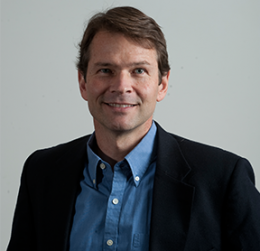INDIANAPOLIS—The Purdue School of Science is proud to announce Chancellor’s Professor Gabe Filippelli, Ph.D., will present at the 2021 Goldschmidt Conference being held in July.

The Goldschmidt is an annual, international conference on geochemistry and related subjects. It’s organized by the European Association of Geochemistry and the Geochemical Society. It will be held virtually this year because of the ongoing COVID-19 pandemic.
Filippelli will give the Ingerson Lecture, which is named after the Geochemical Society’s founder, Frederick Earl Ingerson.
“It is such an honor to give the Ingerson Lecture at this annual international meeting, which I have attended since 1994. Having seen many of these lectures as an audience member over the years, it is truly special for me to be the one up on the stage in front of my peers,” explained Filippelli.
Filippelli’s lecture is titled Applying Geochemistry to Improve Health and Fight Environmental Injustice. He says his lecture will be a roadmap for other geochemists to use, to apply their work to issues of environmental injustices.
“I believe scientists have to make their work relevant to societal challenges where possible, and that geochemists in particular have valuable tools to inform the public about critical issues, and particularly those that disproportionately impact the most vulnerable communities around the world,” said Filippelli. “ Much of my lecture will be focused on engaging with communities to solve contamination issues in their own backyards.”
Filippelli is currently applying his lecture lesson right here in Indiana, with multiple projects, like testing lead levels in water, that involve community-engaged research and citizen science.
“Locally in Indiana and globally, we’re focused on community members sampling the environment (air, soil and water) around them, and our lab analyzing those samples and returning recommendations about how to manage contamination should we find any,” explained Filippelli.
Filippelli hopes those attending the lecture will come away equipped with the tools they need to take action in their own communities.
“I would like people to feel more empowered and committed to devote energy and skills to real-world problems, and to think through how communities can be better engaged in the research process itself as partners,” said Filippelli.